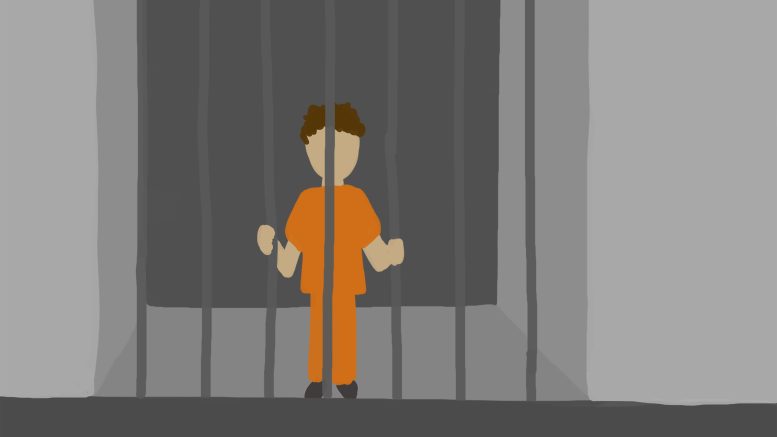You wouldn’t keep buying the same product if it didn’t do what it was meant to do, right? Of course not. Yet this seems like a widely accepted standard for prisons. Prison systems around the world have continued to be inefficient in their primary objective of reducing crime.
While recidivism rates — rates of returning to the criminal justice system after release — in Canada are unavailable at a national level due to a lack of clear data, in the U.S. about half of all formerly incarcerated people are reincarcerated within three years of being released. Why are people sent to jail if not to correct their behaviour?
To answer the last question, we must look at retribution, the idea that offenders should experience pain equal to that experienced by the victims of their crimes in order to achieve balance. Retribution is usually what is meant when people say they want “justice.” It’s the idea that those who do break the law deserve to be punished.
However, crimes and the reasons that people choose to engage in illegal activity are not black and white. By not examining or taking into account the social and psychological factors that cause people to commit crimes, we are being reductive in our approach to creating effective correctional services.
According to research published in the American Journal of Public Health, half of all incarcerated people in Canada have experienced some form of childhood abuse. This finding suggests that inmates might benefit from psychological and mental health support more than punishment. This is why I believe that retribution is counterproductive for making changes. Harm simply serves to reinforce a vicious cycle of more harm.
This finding, coupled with reports of several human rights violations inside of Canadian prisons including poor living conditions, the use of excessive force by prison staff, racism, discrimination, insufficient access to health care, sexual coercion and violence should indicate that further abuse is not conducive to crime reduction.
The further traumatization of inmates within prison systems, who already have what I can only assume to be unresolved trauma, serves no benefit in the correction of deviant behaviour.
Further Canadian research shows that punishment slightly increases recidivism rates, and that being held in prison for longer periods of time is associated with higher rates of recidivism. This data suggests that our approach to crime reduction is not the best way to lessen the negative effects of crime.
The failure of our current system to reduce repeat offences should indicate that a new system is required. That’s why I think the aim of incarceration should be rehabilitation, with the further goal of successful reintegration.
The removal and isolation of citizens from society is already a punishment. During a person’s sentence, the aim of correctional services should be to help them unlearn unacceptable behaviour with the help of various forms of therapy, including psychotherapy and substance abuse treatment.
Rehabilitation has proven itself to be an effective form of correction in Norway’s community-based correctional facilities. Since Norway has implemented a focus on rehabilitation, its recidivism rate has decreased from as high as 70 per cent in the 1990s to the lowest in the world at 20 per cent.
The primary emphasis on reintegration that focuses on emotional and moral rehabilitation, as well as employment skills, is another advantage of Norway’s correctional system.
Because of this, the post-prison employment rate for individuals who were unemployed prior to being incarcerated increases by 40 per cent following release. This, along with the low prison population, all help to boost Norway’s economy.
The idea that inmates deserve cruel treatment during their sentences, yet are expected to become well adjusted citizens once released, is one that baffles me.
How are inmates supposed to learn the fundamental respect we ask of them once they are released when they are not even given it themselves? I think that how people are treated inside of prison should set the precedent for how they treat others inside and outside of incarceration.
At the end of the day, incarcerated people are humans like you and I, and deserve basic human decency and kindness. They are not disposable and should not be treated as such.
They will return to the community, and I believe that their time in prison should prepare them for that. By focusing on healing and rehabilitation in prisons through empathy, therapy, treatment and education, I think that is possible.
However, in order to do this, we must evaluate what matters most to us — changing behaviours or seeking vengeance disguised as justice.





